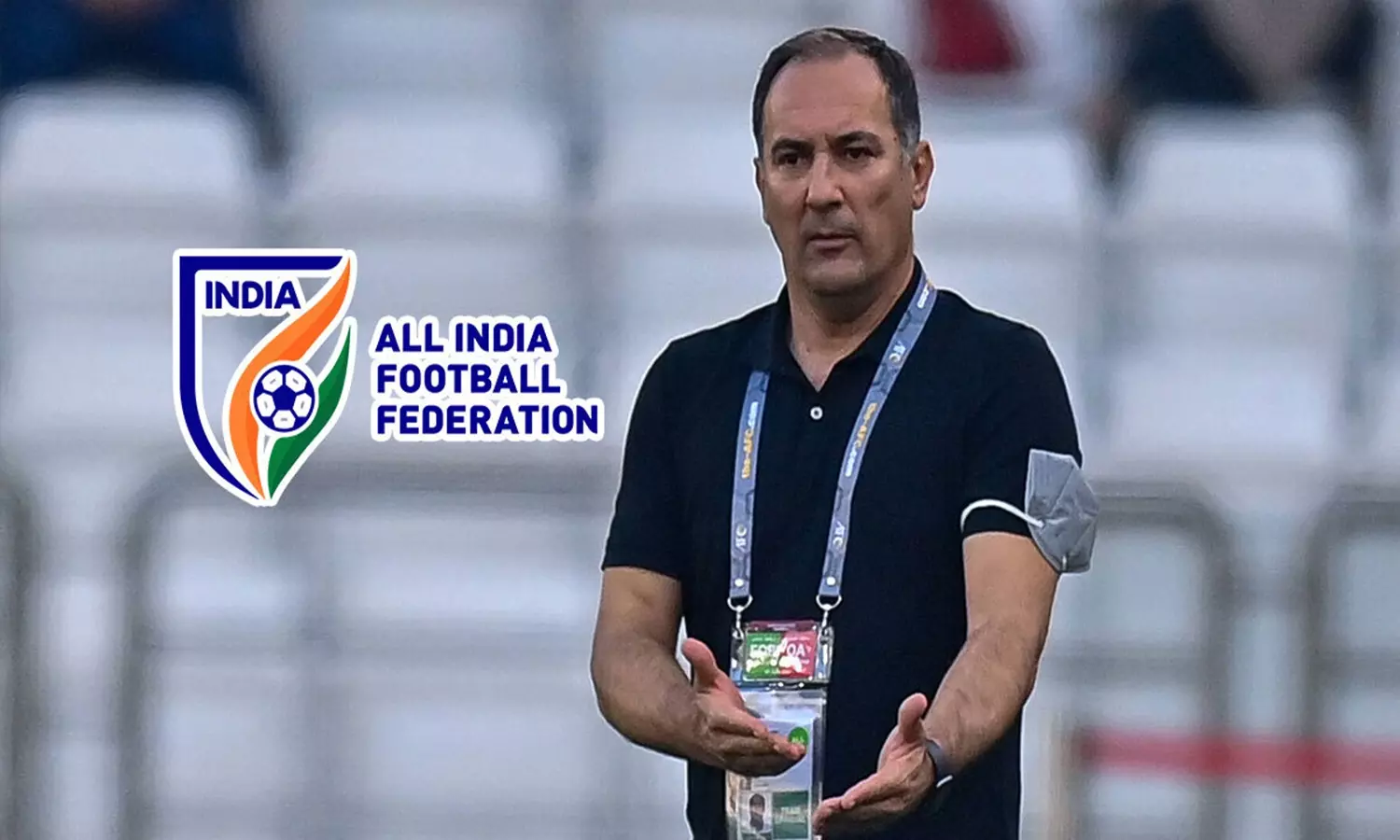Football
Should India include diaspora players?
Igor Stimac calls for the inclusion of diaspora players to achieve fruitful results for the Indian national football team.

Igor Stimac has once again voiced his opinion on including diaspora players in the Indian national side following India's disappointment in crashing out of the World Cup qualifiers, leaving a billion hearts sunk in sorrow.
With high hopes of qualifying for the next round, especially given the groupings alongside Qatar, Kuwait, and Afghanistan—of which only Qatar is a higher-ranked team—India was poised and expected to advance, considering the other two teams are lower-ranked than India.
Barring the controversial loss against Qatar, India could only secure one win in six matches. Furthermore, it suffered a shocking defeat against lower-ranked Afghanistan on home turf.
India's Quest for World Cup Qualification: A Constant Struggle
Qualifying for the World Cup was always going to be an uphill task for India, considering the number of higher-ranked Asian nations. However, the expansion of the tournament from 32 teams to 48 teams starting from the 2026 edition means that the path to qualification could become more achievable for teams like India. Once qualified, India has the potential to become a top-ranked team in Asia.
Having said that, India is struggling to get past round 2 of the Asian qualifiers, which brings into question the lack of game awareness, big-match experiences, and skills at the highest level for Indian players. Many foreign coaches from established footballing nations have come and gone, but our game hasn’t moved forward. Is it time to change our players and bring in players from other countries who are of Indian origin, as suggested by Indian head coach Igor Stimac?
Asian Nations Leveraging Diaspora Players
Several Asian nations have successfully leveraged diaspora players to strengthen their national football teams. Countries like Qatar, the UAE, and Japan have integrated players of foreign origin, particularly from South America and Europe, into their teams.
Most recently, Indonesia's Youth and Sports Ministry registered nearly 400 diaspora footballers, including both women and men. Last year, the Philippines became the first women’s team from Southeast Asia to play at a World Cup, thanks in part to their diaspora players, boosted by a large contingent of dual US nationals.
At the AFC Asian Cup 2023, Iraq had an emphatic victory over Japan in the group stage. The team had 11 players of Iraqi heritage who were either born or brought up outside Iraq but chose to represent the side.
Indian Origin Players who could make a difference
- Yan Dhanda : The former England under-17 international, who plays for Ross County, is a talented midfielder of Indian origin.
- Dilan Markanday : Playing as a winger for EFL Championship club Blackburn Rovers, Markanday is a product of Tottenham Hotspur's youth academy with Indian roots.
- Omid Singh : Playing as a midfielder for Havadar in the Persian Gulf Pro League, Omid Singh has Indian roots through his father and also carries an Indian passport, which makes him eligible to represent the India national team. In 2019, Singh expressed his desire to play for India by giving up Iranian passport as suggested by Igor Stimac. He also holds the Overseas Citizenship Of India (OCI) card.
- Joshua Pynadath: Pynadath, an American football player born to an Indian father, currently plays as a forward for Jong AZ, an Eerste Divisie team in the Netherlands. He made headlines when both Barcelona and Real Madrid showed interest in signing him for their youth systems.
- Manprit Sarkaria: Sarkaria, an Austrian left winger for both Sturm Graz and the Austrian national team, hails from Amritsar, Punjab, India, reflecting his family's roots.
Complexity of India’s Regulations
The Citizenship Act of 1955, which defines the rules and regulations regarding citizenship in India, does not provide for dual citizenship. However, India recognizes the concept of Overseas Citizenship of India (OCI) and Persons of Indian Origin (PIO) status, which offer certain rights and privileges to individuals of Indian origin living abroad.
As of now, there are no laws or policies formulated to officially recognize the representation of India by PIO and OCI holders at international sporting events.
Moreover, obtaining an OCI card makes it much easier for someone to play for India compared to obtaining PIO status. A PIO wishing to represent India must renounce their citizenship from their current country and apply for Indian citizenship.
To become an Indian citizen, they must first register as an OCI (Overseas Citizen of India) and fulfill the residency requirement of residing in India for at least one year out of the mandatory five-year period.
The All India Football Federation (AIFF) is actively exploring options and rule changes regarding players of Indian origin who could potentially represent India. In August of the previous year, the president of AIFF, Kalyan Chaubey, established a task force headed by Samir Thapar.
The task force's objective is to compile a list of potential players of Indian heritage with the aim of potentially allowing them to represent the Indian national team.
